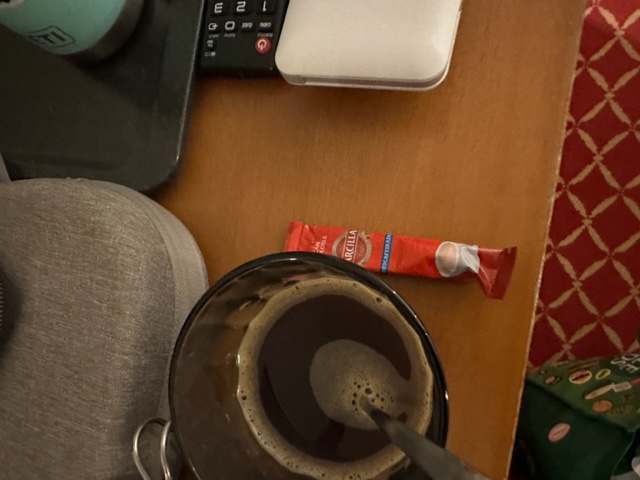Cafe Marcilla
Descafeinado Cafe Soluble
Roaster Location:  Montmeló
Montmeló
 Montmeló
Montmeló
2.50(1)
Shop directly with this roaster
To maintain editorial neutrality, Coffee Roast does not earn any commissions directly from roasters. You may see ads for coffee brands via Google Ads. We do not control content. Please support roasters by directly buying/subscribing from their websites and shops. To learn more, please review our Advertising Policy.
Process: Freeze-dried
Decaf
Reviews(1)
2.50(1)
1
rating
Ratings here are based on aggregated user reviews of individual roasts
from Cafe Marcilla.
5 star
0%
4 star
0%
3 star
0%
2 star
100%
1 star
0%
Latest Reviews and Tasting Notes
-
Theo Chan, Managing Editor
1426 roasts rated, avg score of 4.29
2.50 - Average
2.50 - Flavor
Weird, this decaf was terrible hot, and it's terrible cool. It had a moment where it was warm where it worked. It's very plummy and has a woody bitterness that's not a ton but tastes like biting dried ginseng. It doesn't have pleasant mouthfeel and I didn't want to drink any more after a couple sips.Cupping Method:Tasting against 2 other instant formats, Snowy Owl steeped, and Nescafe classic
More Details
Decaf
Decaffeinated coffee has undergone a process to remove most of the caffeine content while preserving its flavor and aroma. There are three primary decaffeination methods. The solvent-based method involves soaking coffee beans in water to dissolve the caffeine, followed by adding a solvent, such as methylene chloride or ethyl acetate, to bind to the caffeine molecules selectively. The Swiss Water Process (SWP) is a chemical-free method that relies on the principles of solubility and osmosis. Finally, the carbon dioxide method involves using supercritical carbon dioxide to extract caffeine from the coffee beans. Decaf coffee typically retains most of the flavor and aroma of regular coffee but with a significantly reduced caffeine content (around 2-3%).
Similar Roasts
| Name | Roaster | Roast Level | Bean Source |
|---|---|---|---|
|
4.50(4) |
Panther Coffee | Medium Dark | Brazil |
|
4.50(4) |
Downeast Coffee Roasters | Light Medium | Guatemala |
|
4.75(2) |
Cafes San Agustin | Medium | Colombia |
|
4.50(3) |
Suedhang | Medium | Colombia |
|
4.38(4) |
Del's Coffee Roasters | Medium | Peru |
|
5.00(1) |
Coffee Journey | - | - |
|
5.00(1) |
Uncommon | - | Colombia |
|
5.00(1) |
Compass Coffee Roasting | - | Colombia |
|
5.00(1) |
Frukt | - | Colombia |
| Danelaw Coffee | Light | - |

